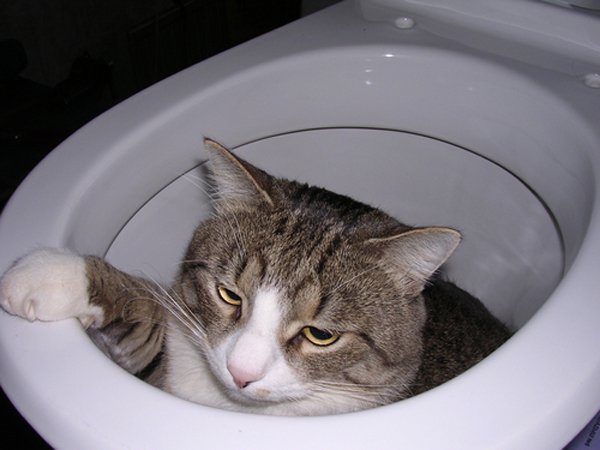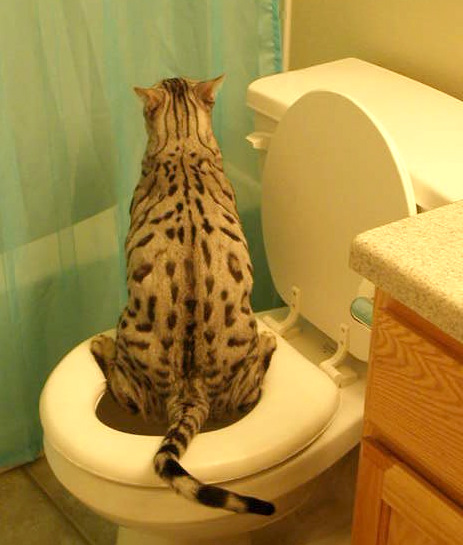Avoid Plumbing Problems: Don't Flush Cat Poop Down Your Toilet - Professional Advice
Avoid Plumbing Problems: Don't Flush Cat Poop Down Your Toilet - Professional Advice
Blog Article
They are making a few good pointers relating to Don’t flush cat feces down the toilet as a whole in the article down the page.

Introduction
As pet cat owners, it's necessary to bear in mind exactly how we dispose of our feline friends' waste. While it might appear practical to flush cat poop down the commode, this method can have damaging repercussions for both the environment and human health.
Alternatives to Flushing
Fortunately, there are safer and more liable ways to dispose of pet cat poop. Take into consideration the following alternatives:
1. Scoop and Dispose in Trash
The most usual method of dealing with feline poop is to scoop it into an eco-friendly bag and toss it in the trash. Make sure to utilize a specialized clutter scoop and take care of the waste quickly.
2. Usage Biodegradable Litter
Select eco-friendly cat clutter made from materials such as corn or wheat. These clutters are eco-friendly and can be safely disposed of in the garbage.
3. Hide in the Yard
If you have a lawn, take into consideration hiding pet cat waste in a designated location far from vegetable gardens and water sources. Be sure to dig deep adequate to avoid contamination of groundwater.
4. Install a Pet Waste Disposal System
Invest in a pet dog waste disposal system specifically created for feline waste. These systems utilize enzymes to break down the waste, reducing odor and environmental influence.
Health and wellness Risks
Along with environmental issues, flushing pet cat waste can additionally position wellness risks to human beings. Pet cat feces might have Toxoplasma gondii, a parasite that can trigger toxoplasmosis-- a possibly serious disease, specifically for expecting women and individuals with weakened immune systems.
Environmental Impact
Flushing feline poop introduces damaging microorganisms and parasites right into the water system, posing a significant risk to marine communities. These pollutants can adversely affect marine life and compromise water high quality.
Conclusion
Accountable family pet ownership expands beyond supplying food and sanctuary-- it likewise involves correct waste management. By refraining from purging feline poop down the toilet and opting for alternate disposal approaches, we can reduce our environmental footprint and protect human health and wellness.
Why You Should Never Flush Cat Poop Down the Toilet
A rose by any other name might smell as sweet, but not all poop is created equal. Toilets, and our sewage systems, are designed for human excrement, not animal waste. It might seem like it couldn’t hurt to toss cat feces into the loo, but it’s not a good idea to flush cat poop in the toilet.
First and foremost, assuming your cat uses a litter box, any waste is going to have litter on it. And even the smallest amount of litter can wreak havoc on plumbing.
Over time, small amounts build up, filling up your septic system. Most litter sold today is clumping; it is made from a type of clay that hardens when it gets wet. Ever tried to scrape old clumps from the bottom of a litter box? You know just how cement-hard it can get!
Now imagine just a small clump of that stuck in your pipes. A simple de-clogger like Drano isn’t going to cut it. And that means it’s going to cost you big time to fix it.
Parasitic Contamination
Believe it or not, your healthy kitty may be harboring a nasty parasite. Only cats excrete Toxoplasma in their feces. Yet it rarely causes serious health issues in the cats that are infected. Most people will be fine too if infected. Only pregnant women and people with compromised immune systems are at risk. (If you’ve ever heard how women who are expecting are excused from litter cleaning duty, Toxoplasma is why.)
But other animals may have a problem if infected with the parasite. And human water treatment systems aren’t designed to handle it. As a result, the systems don’t remove the parasite before discharging wastewater into local waterways. Fish, shellfish, and other marine life — otters in particular — are susceptible to toxoplasma. If exposed, most will end up with brain damage and many will die.
Depending on the species of fish, they may end up on someone’s fish hook and, ultimately on someone’s dinner plate. If that someone has a chronic illness, they’re at risk.
Skip the Toilet Training
We know there are folks out there who like to toilet train their cats. And we give them props, it takes a lot of work. But thanks to the toxoplasma, it’s not a good idea.

As a keen person who reads about How to Dispose of Cat Poop and Litter Without Plastic Bags, I assumed sharing that piece of content was a great idea. In case you enjoyed our blog post please do not forget to share it. Many thanks for your time. Come back soon.
Booking Report this page